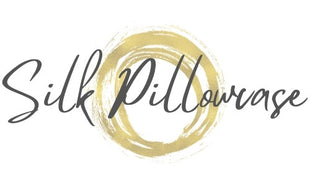When you feel like you're giving your hair everything it needs but it's not reciprocating, it can be draining. Or if you simply feel stuck with your hair and it isn't growing or is growing at a snail's pace. Here you will find the best practises and products required to encourage and accelerate growth.
How to Grow your Curly Hair Fast Naturally
7 Best Steps to Growing Hair Faster
Hair growth is a unique cycle that is both the same and different for each individual, and there are factors outside of our control that can affect your hair growth rate, such as genetics, scalp conditions, and nutritional deficiencies. Overall, as much as we would like to see hair in its longest stage, our primary focus should be on seeing it in its healthiest state, as this is what will produce the result.
1. Having a dedicated scalp routine.
The first and most important step in accelerating hair growth is literally, the scalp. The scalp should be treated with the same care that you would give to your skin. And there are three options for doing so. The first is stimulation, which is frequently overlooked but plays a significant role in the hair care journey.
Using essential oils to massage the scalp promotes blood flow to the hair follicles, which results in healthy cell division and quicker hair growth. This is known as scalp stimulation. Almond oil, jojoba oil, argan oil, and other oils are suggested for this procedure. Yes, your fingers can work wonders for massaging your scalp, but you can also use scalp massagers.
The second step is clarification, which is the removal of dirt, product buildup, minerals, excess oil, and anything else that should not be there. Clarifying treatment is not the same as shampooing because your shampoo may be unable to remove mineral or product buildups due to their composition, which is why a clarifying treatment is recommended.
It should not be overdone because it would be bad for your hair, but it should be incorporated into your hair care routine. There are clarifying shampoos that are applied similarly to regular conditioners, or you can try out home remedies, such as an acid vinegar rinse.
The third thing you should do for your scalp is nourish and treat it. If you suffer from scalp conditions such as dry scalp, psoriasis, dandruff, itchy scalp, and so on. Treating those conditions and massaging the treatments into your scalp will significantly increase your hair growth. A healthy scalp promotes healthy hair growth.
2. Moisturize regularly.
What is curly hair if it isn't moisturised? Nothing. Natural oils and sebum have a difficult time travelling down the hair shaft due to the shape of the follicles. So you want to make up for your hair problems, and one of the best ways to do so is to use a deep conditioner. It works its magic from the inside out and provides intense hydration; we also recommend a leave-in conditioner, creams, and oils.
One thing to consider when choosing a moisturising product is your hair porosity; if you have a low porosity, you should opt for lighterweight products because they are more easily absorbed, whereas if you have a high porosity, you should look for products containing shea butters and oils because they are typically heavier weight.
3. Use a protein treatment.
Consider incorporating protein treatment into your washday regimen. To thrive and be healthy, your hair requires the proper amount of protein and moisture. It obtains its protein from the body, so you should consume more protein-rich foods and vitamins. A protein treatment is also recommended because it aids in the restoration and repair of damaged curly hair by forming new external bonds that give your hair strength, structure, and hardness.
4. Make trimming a habit.
Your hair's gradual separation down the shaft inhibits growth and increases hair breakage. Trimming your hair removes the parts that are more harmful than beneficial, promoting healthy hair development. Split ends cannot be repaired and must be cut off. It is also recommended that you visit your stylist for trims every 4 to 6 weeks.
5. Sleep with protective covers.
As you toss and turn while sleeping, your sheets absorb moisture from your hair, leaving you with a frizzy tangly mess the next morning, which is not good for your hair. Silk materials such as bonnets, scarves, pillowcases, and scrunchies are a worthwhile type of investment because they result in better sleep and their smooth surface allows your strands to glide through, so even if you are a crazy sleeper, your strands stay protected through the night.
6. Avoid certain chemical products.
Products containing harsh sulphates, parabens, and polymers should be avoided because they can inhibit hair follicle growth by leaving buildups and residues on the scalp.
7. Be patient.
Be patient with your hair. Hair development is a journey, so simply focus on providing everything it requires. Avoid touching your hair constantly as this will introduce germs and dirt into your hair and impede the growth process. Allow your hair to breathe and avoid constantly manipulating and styling it.
